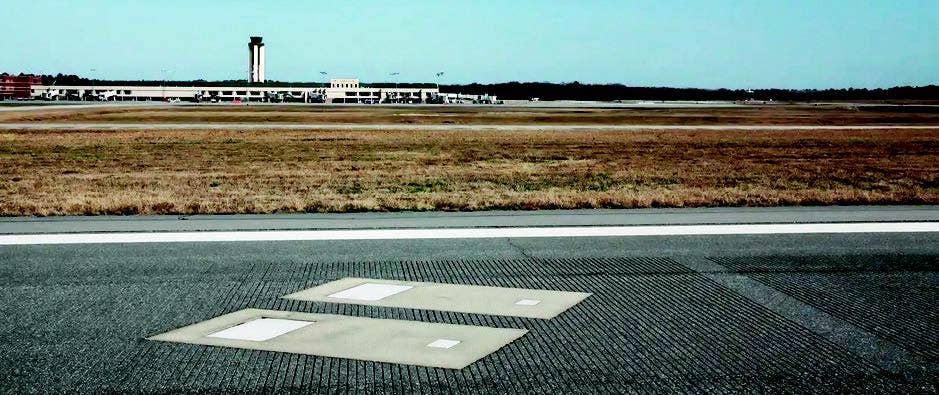Airplane Insurance Trend Could Be Bad for Us All
Airplane insurance may be a first world problem, but it could end up signaling a bad trend for us all.

The latest trend in airplane insurance, although admittedly a first world
problem, doesn’t look
promising for GA pilots.
My dearest fellow pilot,
Don’t you hate it when your backup camera is fogged up in the morning so you have to actually look in your mirrors to see what’s behind you like some kind of “depression era” truck driver? Or when the headlights of the truck behind you hurt your eyes when you’re in your Lotus GT? Yeah, me too. First world problems, eh? Why, just this morning it took me forever to find the end of the Scotch tape roll.
I hear you just bought your own airplane. Finally, nothing standing between you and the deep blue sky as you soar majestically high above those millions of mere mortals. As my close friend William Blake used to say, before his untimely death in 1827, “No bird soars too high if he soars with his own wings.”
If you're not already a subscriber, what are you waiting for? Subscribe today to get the issue as soon as it is released in either Print or Digital formats.
Subscribe NowWhile Big Willy, as he was often known, might have intentionally overlooked the ever-present complication of weather, we can certainly forgive his lack of appreciation of basic aerodynamics and RVSM rules, not to mention fuel costs, A&P shortages, parts shortages, hangar shortages, currency and compliance rules, loan payments, and that one other knotty problem: insurance.
This is one of those truths that we hold to be self-evident about aircraft ownership, that the fourth most effectively restrictive, general-aviation-killing authority in the world is the FAA. The third most is every other government in the world. The second most is the Chinese Communist Party. And No. 1, by a nautical mile, are the occupants of that dark haunted castle with the impenetrable iron door known as the home of the insurance underwriters. Standing just outside that door is your one and only insurance broker. Let’s call him Bernie, the designated middleman who happily collects a fee for whispering into a slot in the door, listening, and then telling you what the inhabitants have whispered back to him. Creepy, huh?
Among the things you aren’t allowed to know in this exchange is what did Bernie actually whisper to the Star Chamber? What did he tell them about you, if anything? What kind of working relationship does Bernie have with them? Do they think he’s a jerk or an idiot or a crook? How many underwriters did Bernie actually talk to? All of them, or just the ones paying the highest commissions? Can I trust Bernie to tell me what the underwriters are really whispering to him?
For crying out loud, who came up with this system? Is it really in the underwriter’s interest to avoid direct contact, accepting secondhand information about the character and flying capabilities of the people they insure? Is it really in your interest to cover Bernie’s boat payments every year? I submit, my dear friend, the answer is no…but here we are.
Wouldn’t it be wonderful if we could just walk away from this archaic system and force some reforms by using the power consumers usually have? But then we’d be the challenged ones. Sadly, unless you’ve paid cash for an airplane worth less than 20 grand, one that has only a pilot’s seat and flies exclusively over West Texas or some other equally empty quarter of the world, you’d be out of your mind to fly without insurance. Incidentally, you might also be out of your mind climbing into an airplane that’s worth less than 20 grand.
I recently came across a plaque hanging in an FBO that said, “If you’re lucky enough to own an airplane, you’re lucky enough.”
I’m thinking of selling a plaque that reads, “If you’re lucky enough to own an airplane, you’re worth suing.”
Airplanes are expensive, and stuff happens to airplanes and the people who ride in them.
Sometimes it’s in the air, sometimes it’s during a hasty or sudden unflying, and sometimes it’s the result of something stupid or unlucky on the ground. And more than being just an expensive tool slash toy, many well maintained airplanes have become pretty good investments if your timing is right.
All of this, combined with the prospect of losing everything to a liability claim, means that insurance, the mechanics of shared risk, is the only solution to protecting those things you’ve worked so hard for.
Back to Bernie for a moment. The annual routine starts with you filling out a form with information that he already has which, you assume, he forwards on to his favorite underwriters. A couple of weeks before your current coverage lapses, he gets back to you with a list of six or seven responses each containing either a quote with terms of coverage or an outright “Refusal to Quote” for this or that reason.
This year, because of your age, you are turned down by every single underwriter that Bernie chose for you, except for one. Just like every year for the last six years, your premiums rise 20-plus percent year over year. Each year’s increase is accompanied with a colorful explanation, usually featuring losses associated with unusually high claims by pilots other than you.
This year’s explanation is a real prize winner. The premiums have gone up, he tells you, because of the losses caused by the war in Ukraine.
“Really, Bernie?” you say, “The insurance underwriters, the ones that are too frightened to cover me, are writing insurance in Ukraine?” This is all absolute nonsense. You’d fire Bernie if you thought you had better than a 33 percent chance of improving your representation.
I honestly believe that if we were allowed to interact directly with whomever it is that’s making the decisions, were given a chance to present our qualifications, background, and flying history, we could lower our premiums by lowering the assumed risk for the underwriters.
But how do we start?
Well, it seems to me that there are others in this industry that would benefit from the success of this cause. Perhaps the companies that build airplanes for people that can afford them. How about the companies that provide training, or the alphabet organizations that benefit from our memberships and donations?
Hey, are you guys listening? You all can save a lot of time by seeing it my way. That’s it for now.
Here’s hoping you have the day you deserve.
— F.W.
This column first appeared in the August 2023/Issue 940 print edition of FLYING.

Subscribe to Our Newsletter
Get the latest FLYING stories delivered directly to your inbox







